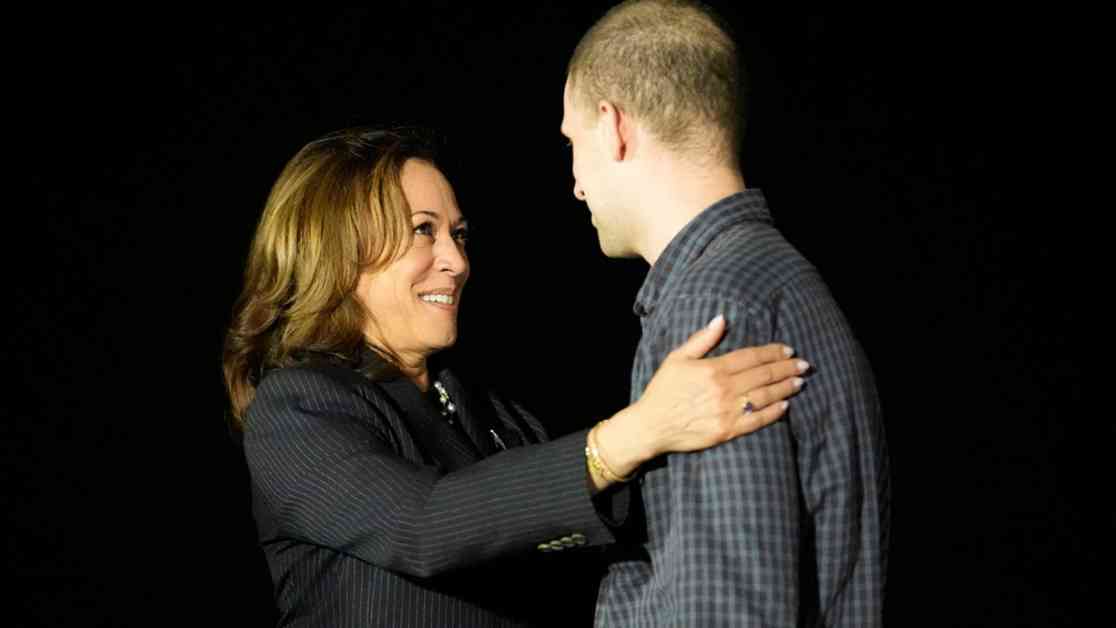Three Americans, Evan Gershkovich, Alsu Kurmasheva, and Paul Whelan, have returned to the US after being released from Russian prisons through a historic exchange deal. This exchange involved a total of 24 people and marked the largest prisoner swap between Russia and the West since the Cold War.
Upon their arrival at Joint Base Andrews in Maryland, they were greeted by US President Joe Biden and Vice President Kamala Harris. In response to concerns that the exchange could lead to the detainment of more Americans in Russia, President Biden dismissed the idea of leaving people in jail to prevent potential captures.
Vice President Harris praised President Biden’s role in orchestrating the prisoner exchange, emphasizing the importance of diplomacy. She took a swipe at former President Donald Trump, highlighting the significance of having a leader who values diplomatic solutions.
The negotiations for this exchange, involving Russia and several other countries, were kept confidential for over a year, underscoring the complexity of the process. The return of the three Americans followed the transfer of 13 other Western detainees to Germany the previous night, including Vladimir Kara-Murza, a dual UK-Russian citizen.
In addition to the Americans, eight Russian prisoners were released from various countries as part of the deal. Evan Gershkovich, a journalist for the Wall Street Journal, was falsely accused of espionage and sentenced to 16 years in prison. Alsu Kurmasheva, a journalist for Radio Free Europe-Radio Liberty, was detained for spreading false information about the Russian military and sentenced to over six years in prison.
Paul Whelan, a former US marine, was arrested in Moscow in 2018 on charges of espionage and sentenced to 16 years in a maximum-security prison. He maintained his innocence, claiming he was set up by a sting operation involving a USB drive given to him unknowingly.
The significance of this prisoner exchange goes beyond the release of individuals; it reflects diplomatic efforts to address international conflicts and protect the rights of citizens detained abroad. The involvement of multiple countries in the negotiations underscores the intricate nature of such agreements and the importance of diplomatic relations in resolving disputes.












